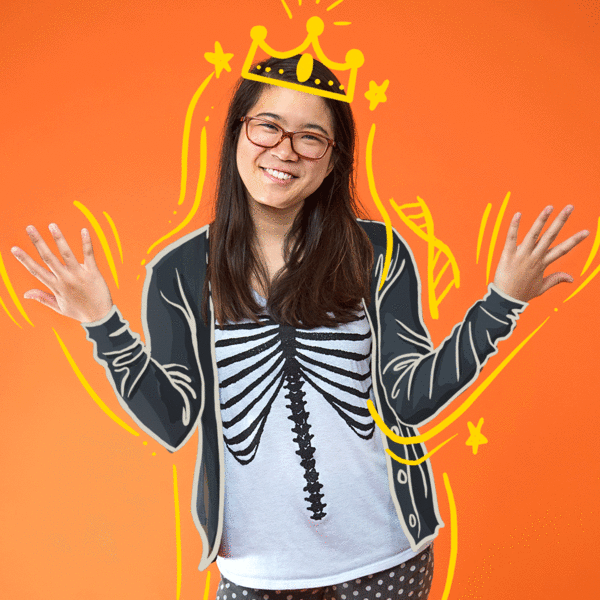Dealing with tragic loss is one of the hardest parts of being human, and Larissa wants to help ease that pain. Double majoring in biochemistry and anthropology at The University of Texas at Austin, she studies moments when death touches life. Larissa has experience in the forensic sciences including crime scene investigation, death investigation and forensic anthropology. She has researched infant death investigations through an internship with the Harris County Institute of Forensic Sciences. To help address SIDS, she organized Austin’s first Baby Box Community Distribution Event, an initiative for safe sleep for infants. When she graduates, she plans to work in forensic science before pursuing a medical degree to become a forensic pathologist.
What is your major? Why did you choose it?
I majored in both anthropology and biochemistry. I actually came into UT knowing exactly what I wanted to study, which I think is pretty lucky. I’ve always been enamored with both subjects, and each semester I fell more and more in love with them.
Anthropology and biochemistry is an interesting degree combination? How do those intersect?
For me, it is seeing how things on a biophysical level build up to big organisms that build up to a society and culture. It ties into my interest in forensic science. Both focus on small details that come together to form a big picture of the human experience.
Death is a scary thing, but it doesn’t seem to frighten you. Why is that?
Dealing with death, of course, is hard, but it’s something that becomes even harder when you remove yourself from it completely throughout your whole life until death actually comes your way.
Dealing with death is hard, but it's something that becomes even harder when you remove yourself from it completely.”
Have you always felt this way?
A death-positive view is something I definitely always had, but it has grown working with so many different agencies within forensic science, where I am actually dealing with death firsthand.
What is a death-positive view?
Death-positive is not removing yourself from death. It’s being aware that death is something that ultimately comes and something that’s part of life. We are going to die, but that’s fine. We should live while we can. I have been getting really into death-positive media. I’m listening to a podcast called “Pre-Dead Boys” and following some Instagram accounts that are all death-positive.
How does forensic science help ease people into this process?
I am passionate about making people’s lives easier during tough times. I’ve worked in death investigations and spoken directly to families that were just finding out about the death of a loved one. The biggest questions are always why, what happened, how could this be? And I think a really huge part in that healing process is answering those questions.
Larissa Ybanez is graduating with degrees in biochemistry from the College of Natural Sciences and anthropology from the College of Liberal Arts at The University of Texas at Austin. She was president of Texas Forensics and received the College of Natural Sciences Distinction in Service and Leadership.
